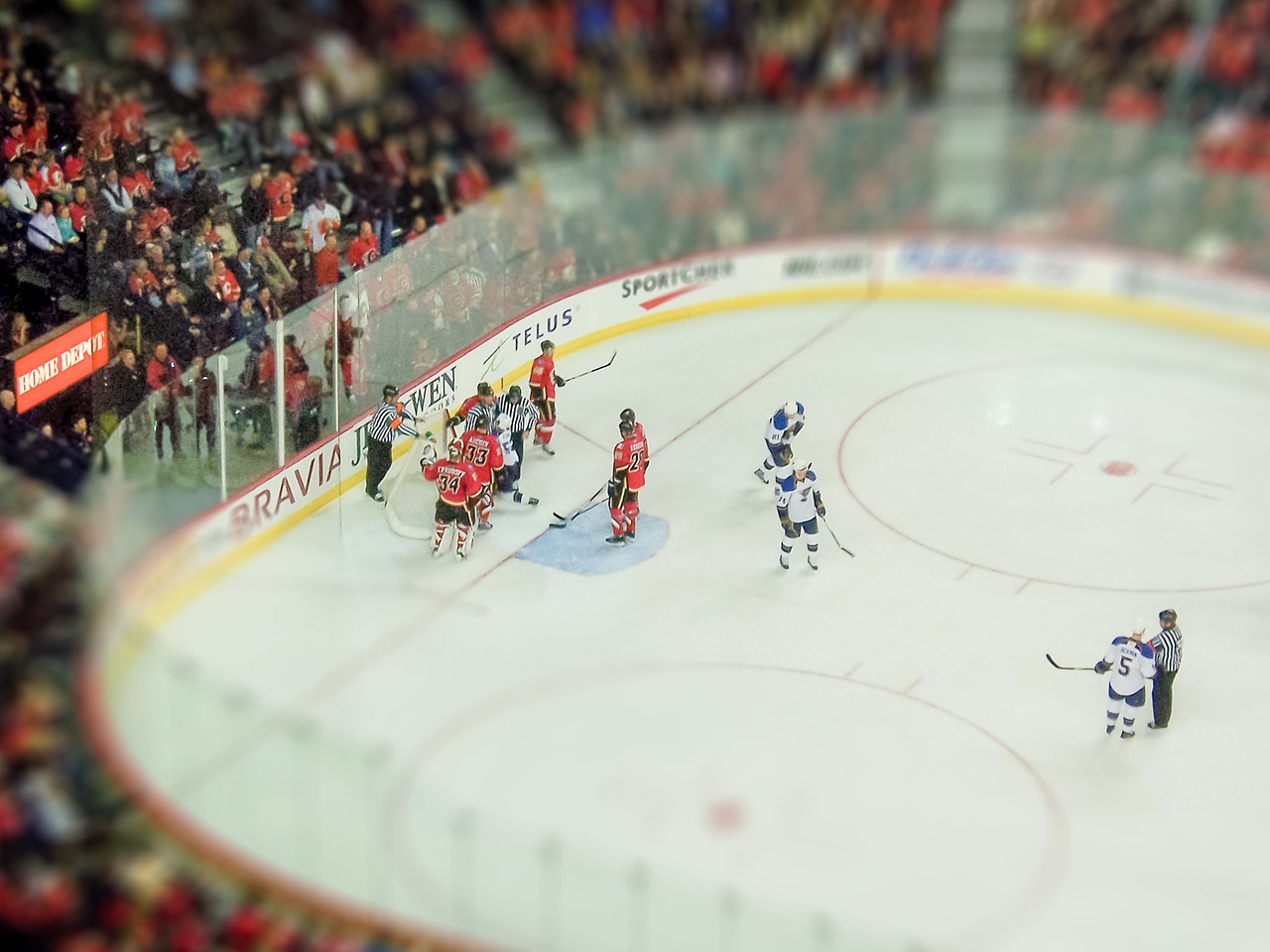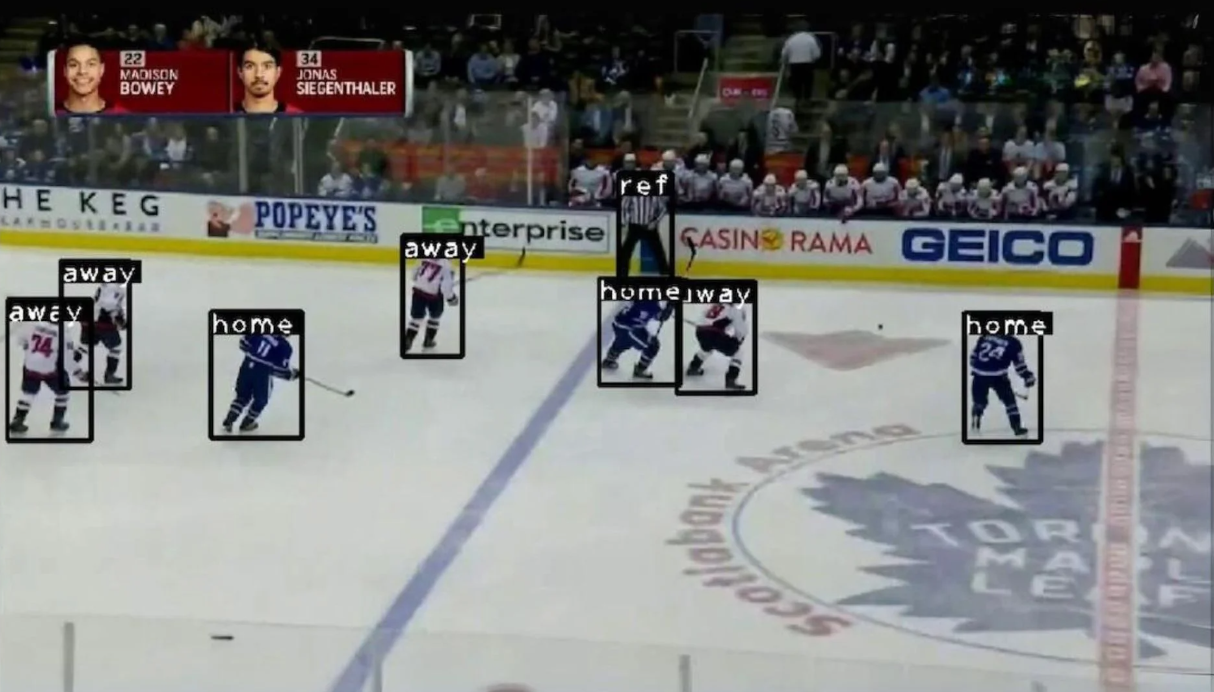
ΑΙhub.org
Going top shelf with AI to better track hockey data

Researchers from the University of Waterloo got a valuable assist from artificial intelligence (AI) tools to help capture and analyze data from professional hockey games more quickly and more accurately, something which could have implications for the business of sports.
The growing field of hockey analytics currently relies on the manual analysis of video footage from games. Professional hockey teams across the sport, notably in the National Hockey League (NHL), make important decisions regarding players’ careers based on that information.
“The goal of our research is to interpret a hockey game through video more effectively and efficiently than a human,” said Dr David Clausi, a professor in Waterloo’s Department of Systems Design Engineering. “One person cannot possibly document everything happening in a game.”
 Bounding boxes are used to identify players as they move on the ice in broadcast game video. Jersey colours allow identification of home and away players.
Bounding boxes are used to identify players as they move on the ice in broadcast game video. Jersey colours allow identification of home and away players.
Hockey players move fast in a non-linear fashion, dynamically skating across the ice in short shifts. Apart from numbers and last names on jerseys that are not always visible to the camera, uniforms aren’t a robust tool to identify players — particularly at the fast-paced speed hockey is known for. This makes manually tracking and analyzing each player during a game very difficult and prone to human error.
The AI tool developed by Clausi, Dr John Zelek, a professor in Waterloo’s Department of Systems Design Engineering, research assistant professor Yuhao Chen, and a team of graduate students, uses deep learning techniques to automate and improve player tracking analysis.
The research was undertaken in partnership with Stathletes, an Ontario-based professional hockey performance data and analytics company. Working through NHL broadcast video clips frame-by-frame, the research team manually annotated the teams, the players and the players’ movements across the ice. They ran this data through a deep learning neural network to teach the system how to watch a game, compile information and produce accurate analyses and predictions.
When tested, the system’s algorithms delivered high rates of accuracy. It scored 94.5 per cent for tracking players correctly, 97 per cent for identifying teams and 83 per cent for identifying individual players.
The research team is working to refine their prototype, but Stathletes is already using the system to annotate video footage of hockey games. The potential for commercialization goes beyond hockey. By retraining the system’s components, it can be applied to other team sports such as soccer or field hockey.
“Our system can generate data for multiple purposes,” Zelek said. “Coaches can use it to craft winning game strategies, team scouts can hunt for players, and statisticians can identify ways to give teams an extra edge on the rink or field. It really has the potential to transform the business of sport.”
More information about this work can be found in the research paper, Player tracking and identification in ice hockey, published recently in the journal Expert Systems With Applications.
tags: quick read









